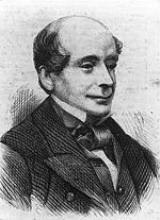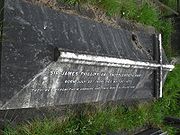
James Phillips Kay-Shuttleworth
Encyclopedia
Sir James Phillips Kay-Shuttleworth, 1st Baronet (20 July 1804 – 26 May 1877) was a British politician and educationalist.
, Lancashire, the son of Robert Kay. He was the brother of Joseph Kay
and of Sir Edward Ebenezer Kay
.
. Settling in Manchester
about 1827, he was instrumental in setting up the Manchester Statistical Society
. He worked for the Ancoats and Ardwick Dispensary. While still known simply as Dr. James Kay, he wrote The moral and physical condition of the working-class employed in the cotton manufacture on Manchester (1832), which was cited by Friedrich Engels
in Condition of the Working Class in England in 1844. The experience which he thus gained of the conditions of the poor in the Lancashire factory districts, together with his interest in economic science, led to his appointment in 1835 as poor law commissioner in Norfolk
and Suffolk
and later in the London districts. In 1839 he was appointed first secretary of the committee formed by the Privy Council
to administer the Government grant for the public education in Britain.
He is remembered as having founded at Battersea, London, in conjunction with E. Carleton Tufnell, the first training college for school teachers (1839–1840); and the system of national school education of the present day, with its public inspection, trained teachers and its support by state as well as local funds, is largely due to his initiative.
, during the Lancashire cotton famine of 1861-1865. He was created a baronet in 1849. Until the end of his life he interested himself in the movements of the Liberal Party
in Lancashire, and the progress of education. His Physiology, Pathology and Treatment of Asphyxia became a standard textbook, and he also wrote numerous papers on public education. He was also one of the key figures in the foundation of the Girls' Public Day School Company
and was a member of their Council until shortly before his death. He was High Sheriff of Lancashire
for 1864. He died in 1877 and is buried in Brompton Cemetery
, London.

in Padiham
at age four months.
They had five children. His son, Sir Ughtred James Kay-Shuttleworth (1844–1939), the eldest, became a well-known Liberal politician, sitting in parliament for Hastings
from 1869 to 1880 and for the Clitheroe
division of Lancashire from 1885 till 1902, when he was created Baron Shuttleworth
. He was Chancellor of the Duchy of Lancaster
in 1886, and secretary to the Admiralty
in 1892-1895.
Early life
He was born James Kay at RochdaleRochdale
Rochdale is a large market town in Greater Manchester, England. It lies amongst the foothills of the Pennines on the River Roch, north-northwest of Oldham, and north-northeast of the city of Manchester. Rochdale is surrounded by several smaller settlements which together form the Metropolitan...
, Lancashire, the son of Robert Kay. He was the brother of Joseph Kay
Joseph Kay
Joseph Kay QC was an English economist.Kay was born at Salford, Lancashire, the brother of Sir James Kay-Shuttleworth, 1st Baronet and Sir Edward Kay. Educated privately and at Trinity College, Cambridge, he was called to the bar at the Inner Temple in 1848...
and of Sir Edward Ebenezer Kay
Edward Ebenezer Kay
Sir Edward Ebenezer Kay was a British jurist. He was an English High Court judge from 1881 to 1890, and a Lord Justice of Appeal from 1890, when he was made a Privy Councillor, until his retirement in January 1897.He was born in Meadowcroft near Rochdale and grew up in Bury and was the...
.
Career
At first engaged in a Rochdale bank, in 1824 he became a medical student at the University of EdinburghUniversity of Edinburgh
The University of Edinburgh, founded in 1583, is a public research university located in Edinburgh, the capital of Scotland, and a UNESCO World Heritage Site. The university is deeply embedded in the fabric of the city, with many of the buildings in the historic Old Town belonging to the university...
. Settling in Manchester
Manchester
Manchester is a city and metropolitan borough in Greater Manchester, England. According to the Office for National Statistics, the 2010 mid-year population estimate for Manchester was 498,800. Manchester lies within one of the UK's largest metropolitan areas, the metropolitan county of Greater...
about 1827, he was instrumental in setting up the Manchester Statistical Society
Manchester Statistical Society
Manchester Statistical Society is a learned society founded 1833 in Manchester, England. It claims to be "the first organisation in Britain to study social problems systematically and to collect statistics for social purposes" and in 1834 to be "the first organisation to carry out a house-to-house...
. He worked for the Ancoats and Ardwick Dispensary. While still known simply as Dr. James Kay, he wrote The moral and physical condition of the working-class employed in the cotton manufacture on Manchester (1832), which was cited by Friedrich Engels
Friedrich Engels
Friedrich Engels was a German industrialist, social scientist, author, political theorist, philosopher, and father of Marxist theory, alongside Karl Marx. In 1845 he published The Condition of the Working Class in England, based on personal observations and research...
in Condition of the Working Class in England in 1844. The experience which he thus gained of the conditions of the poor in the Lancashire factory districts, together with his interest in economic science, led to his appointment in 1835 as poor law commissioner in Norfolk
Norfolk
Norfolk is a low-lying county in the East of England. It has borders with Lincolnshire to the west, Cambridgeshire to the west and southwest and Suffolk to the south. Its northern and eastern boundaries are the North Sea coast and to the north-west the county is bordered by The Wash. The county...
and Suffolk
Suffolk
Suffolk is a non-metropolitan county of historic origin in East Anglia, England. It has borders with Norfolk to the north, Cambridgeshire to the west and Essex to the south. The North Sea lies to the east...
and later in the London districts. In 1839 he was appointed first secretary of the committee formed by the Privy Council
Privy Council of the United Kingdom
Her Majesty's Most Honourable Privy Council, usually known simply as the Privy Council, is a formal body of advisers to the Sovereign in the United Kingdom...
to administer the Government grant for the public education in Britain.
He is remembered as having founded at Battersea, London, in conjunction with E. Carleton Tufnell, the first training college for school teachers (1839–1840); and the system of national school education of the present day, with its public inspection, trained teachers and its support by state as well as local funds, is largely due to his initiative.
Later life
A breakdown in his health led him to resign his post on the committee in 1849, but subsequent recovery enabled him to take an active part in the working of the central relief committee instituted under Lord DerbyEdward Smith-Stanley, 14th Earl of Derby
Edward George Geoffrey Smith-Stanley, 14th Earl of Derby, KG, PC was an English statesman, three times Prime Minister of the United Kingdom, and to date the longest serving leader of the Conservative Party. He was known before 1834 as Edward Stanley, and from 1834 to 1851 as Lord Stanley...
, during the Lancashire cotton famine of 1861-1865. He was created a baronet in 1849. Until the end of his life he interested himself in the movements of the Liberal Party
Liberal Party (UK)
The Liberal Party was one of the two major political parties of the United Kingdom during the 19th and early 20th centuries. It was a third party of negligible importance throughout the latter half of the 20th Century, before merging with the Social Democratic Party in 1988 to form the present day...
in Lancashire, and the progress of education. His Physiology, Pathology and Treatment of Asphyxia became a standard textbook, and he also wrote numerous papers on public education. He was also one of the key figures in the foundation of the Girls' Public Day School Company
Girls' Day School Trust
The Girls' Day School Trust is a group of 26 independent schools - 24 schools and two Academies - in England and Wales, catering for pupils aged 3 to 18. It is the largest group of independent schools in the UK, and educates 20,000 girls each year...
and was a member of their Council until shortly before his death. He was High Sheriff of Lancashire
High Sheriff of Lancashire
The High Sheriff of Lancashire is an ancient officer, now largely ceremonial, granted to Lancashire, a county in North West England. High Shrievalties are the oldest secular titles under the Crown, in England and Wales...
for 1864. He died in 1877 and is buried in Brompton Cemetery
Brompton Cemetery
Brompton Cemetery is located near Earl's Court in South West London, England . It is managed by The Royal Parks and is one of the Magnificent Seven...
, London.

Personal life
In 1842 he married Lady Janet Shuttleworth (b. 9 November 1817), assuming by royal licence his bride’s name and arms. His wife had inherited the estate centred on Gawthorpe HallGawthorpe Hall
Gawthorpe Hall, a Lancashire County Council property managed by the National Trust is an Elizabethan house near the town of Padiham, in the borough of Burnley, Lancashire, England...
in Padiham
Padiham
Padiham is a small town and civil parish on the River Calder, about west of Burnley and south of Pendle Hill, in Lancashire, England. It is part of the Borough of Burnley but also has its own town council with varied powers.-History:...
at age four months.
They had five children. His son, Sir Ughtred James Kay-Shuttleworth (1844–1939), the eldest, became a well-known Liberal politician, sitting in parliament for Hastings
Hastings
Hastings is a town and borough in the county of East Sussex on the south coast of England. The town is located east of the county town of Lewes and south east of London, and has an estimated population of 86,900....
from 1869 to 1880 and for the Clitheroe
Clitheroe
Clitheroe is a town and civil parish in the Borough of Ribble Valley in Lancashire, England. It is 1½ miles from the Forest of Bowland and is often used as a base for tourists in the area. It has a population of 14,697...
division of Lancashire from 1885 till 1902, when he was created Baron Shuttleworth
Baron Shuttleworth
Baron Shuttleworth, of Gawthorpe in the County Palatine of Lancaster, is a title in the Peerage of the United Kingdom. It was created on 16 July 1902 for the Liberal politician Sir Ughtred Kay-Shuttleworth, 2nd Baronet. Both his sons were killed in the First World War and he was therefore succeeded...
. He was Chancellor of the Duchy of Lancaster
Chancellor of the Duchy of Lancaster
The Chancellor of the Duchy of Lancaster is, in modern times, a ministerial office in the government of the United Kingdom that includes as part of its duties, the administration of the estates and rents of the Duchy of Lancaster...
in 1886, and secretary to the Admiralty
Admiralty
The Admiralty was formerly the authority in the Kingdom of England, and later in the United Kingdom, responsible for the command of the Royal Navy...
in 1892-1895.

